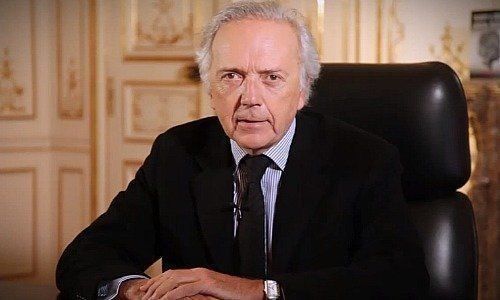More and more stock market gurus bid farewell. And there’s nobody to follow in their footsteps.
The high priest of European fund management relinquishes the control over his two flagship products – Edouard Carmignac (pictured below) in 2008 weathered the storm thanks to risky bets and won a great deal of admirers.
Now, at the age of 71, he is going to concentrate on the investment strategy of his asset management firm based in Paris.
Dr. Doom in Hot Water
Carmignac is yet another of the famed stock exchange gurus to wave goodbye to a public that admired their opinions, pioneering and frequently counter-intuitive as they were. In 2017, «Dr. Doom» Marc Faber got himself into hot water over derogatory remarks about Afro-American people. And three years before, the king of bonds, Bill Gross, was fired by Pimco and hasn’t been seen since.

In 2016, Mark Moebius, the emerging markets expert, handed over responsibility for the fund business, introducing a younger generation into the business. Warren Buffett (Berkshire Hathaway) and Larry Fink (Blackrock) are also known to be looking for successors.
An esteemed member of this group of experts has recently died: John Bogle, the founder of index funds and the U.S. giant distributor Vanguard.
Seismic Shift
So the questions now is who will follow in their footsteps – or is the traditional stock market guru about to die out? It isn’t just about demographics that the list of professional investors is shortening.
The investment business as a whole is undergoing a fundamental change. The seismic shift in the business may well remove the financial clout upon which the professional investors based their acclaimed expertise. One example are the outflows of assets at the Carmignac funds.
Investors Want a Return, Not a Star
The star investors who’re betting against the market with a certain aplomb are getting out-of-fashion. The success of index products pushed the active investment strategies to the fringes of the business. Institutional investors such as pension funds and banks are managing ever rising amounts of money and thus become ever more powerful. They are not interested in star managers. They want stable returns and low costs and nothing else, says one veteran asset manager in Switzerland. And therefore the boom of passive products has firmed.
Today, the machine has taken over – rendering freaky behavior by star managers on Harley Davidsons and in the red-light district even more obscure. Digitization and strict governance are the major concepts discussed in the business since the collapse of banking in 2008. And more than half of the equity business in the U.S. today is being traded by machines.
Man Machine
- Page 1 of 2
- Next >>































